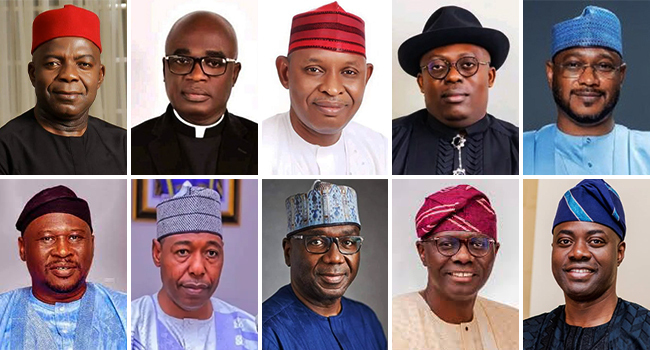
NEWS of revenue inflow to the states and local governments from the Federation Account Allocation Committee in October and in previous years indicates a wide disparity between resources received and their impact on the lives of ordinary Nigerians. While the FAAC said it shared N583.58 billion among the states and LGs in October, another report showed that the states, LGs, and the Federal Capital Territory collected N8.8 trillion from 2020 to 2021. These tiers of government should do more to justify these sums and eradicate poverty among Nigerians.
Human development indices in the country are dismal, clear evidence that the huge funds received have had minimal impact in addressing poverty and joblessness, or enhancing economic development, and social services.
FAAC said that of the N906.96 billion shared among the three tiers for October, the Federal Government got N323.35 billion; the 36 states shared N307.71 billion, while the 774 LGs received N225.2 billion. Additionally, the nine oil producing states jointly shared N50.67 billion being the 13 per cent derivation on mineral revenue.
Meanwhile, NEITI, through its Fiscal Allocation and Audit Report, said combined, the states, FCT, and the LGs shared N8.8 trillion in two years, 2020 and 2021, from revenue accruing from gross statutory allocations, VAT, and derivation.
The South-South zone, where five of its six states host oil production, received the highest with N2.59 trillion, representing 29.53 per cent; the North-West got N1.56 trillion or 17.72 per cent; the South-West N1.28 trillion or 14.57 per cent; North-Central N1.26 trillion or 14.39 per cent; North-East N1 trillion or 12.71 per cent; and South-East N963 billion or 10.96 per cent.
The states and LGs are not maximising these funds; rather, they indulge in luxuries, waste, white elephants, and frivolities. Corruption is endemic. Among the first class of governors in the Fourth Republic 1999-2007, the Economic and Financial Crimes Commission said in 2009 that 31 of them were under investigation for corrupt practices. Most were eventually charged to court, including one accused of stealing the equivalent of $200 million.
Most of their successors have been similarly investigated. Plunder also reigns at the LGs. A 2022 report by the US non-profit, Carnegie Endowment For International Peace, noted that though “disproportionally important,” and better placed to alleviate poverty, “no local government in Nigeria works for the people. They provide barely any public goods and service despite gulping N16.4 trillion between 2011 and 2021.”
Instead, as in the federal and state levels, kleptomania reigns. Poor governance is endemic. The governors and LG bosses live in luxury, totally unconcerned about the prevailing misery of most Nigerians. Infrastructure is grossly inadequate; the little available is decrepit, and joblessness is rampant.
The governors are content to be abject dependencies of a mighty central government, sharing revenue they did not generate monthly. They have no actionable economic plans with targets to drive development and the people’s welfare.
Consequently, poverty is pervasive. Multilateral agencies forecast that between seven million and over 10 million more Nigerians will join their 133 million multidimensionally poor compatriots identified in 2022 by the National Bureau of Statistics.
Indebted to the tune of N5.81 trillion to domestic creditors by June 30, and $4.46 billion to external creditors by December 2022, the 36 states and the FCT combined need to change course and become positive change agents.
Governors and LG bosses should be prudent with public funds and be accountable to the state and LG legislatures. The parliaments should exercise effective oversight over them.
Nigerians should shake off their lethargy and demand good governance and accountability from elected officials. The anti-corruption war should be revived with special searchlight beamed on state and LG funds.














